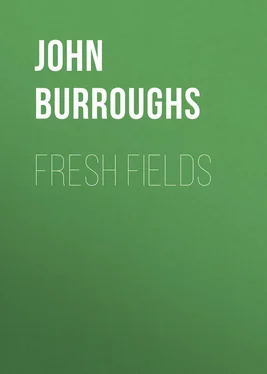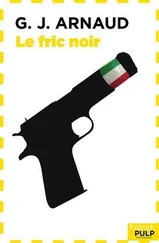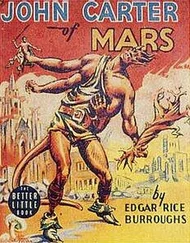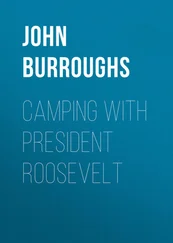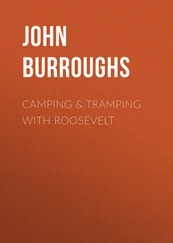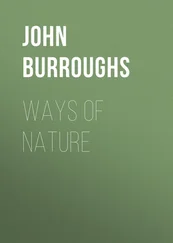John Burroughs - Fresh Fields
Здесь есть возможность читать онлайн «John Burroughs - Fresh Fields» — ознакомительный отрывок электронной книги совершенно бесплатно, а после прочтения отрывка купить полную версию. В некоторых случаях можно слушать аудио, скачать через торрент в формате fb2 и присутствует краткое содержание. Жанр: foreign_antique, foreign_prose, Историческая проза, на английском языке. Описание произведения, (предисловие) а так же отзывы посетителей доступны на портале библиотеки ЛибКат.
- Название:Fresh Fields
- Автор:
- Жанр:
- Год:неизвестен
- ISBN:нет данных
- Рейтинг книги:3 / 5. Голосов: 1
-
Избранное:Добавить в избранное
- Отзывы:
-
Ваша оценка:
- 60
- 1
- 2
- 3
- 4
- 5
Fresh Fields: краткое содержание, описание и аннотация
Предлагаем к чтению аннотацию, описание, краткое содержание или предисловие (зависит от того, что написал сам автор книги «Fresh Fields»). Если вы не нашли необходимую информацию о книге — напишите в комментариях, мы постараемся отыскать её.
Fresh Fields — читать онлайн ознакомительный отрывок
Ниже представлен текст книги, разбитый по страницам. Система сохранения места последней прочитанной страницы, позволяет с удобством читать онлайн бесплатно книгу «Fresh Fields», без необходимости каждый раз заново искать на чём Вы остановились. Поставьте закладку, и сможете в любой момент перейти на страницу, на которой закончили чтение.
Интервал:
Закладка:
It seemed eminently fit that Carlyle's dust should rest here in his native soil, with that of his kindred, he was so thoroughly one of them, and that his place should be next his mother's, between whom and himself there existed such strong affection. I recall a little glimpse he gives of his mother in a letter to his brother John, while the latter was studying in Germany. His mother had visited him in Edinburgh. "I had her," he writes, "at the pier of Leith, and showed her where your ship vanished; and she looked over the blue waters eastward with wettish eyes, and asked the dumb waves 'when he would be back again.' Good mother."
To see more of Ecclefechan and its people, and to browse more at my leisure about the country, I brought my wife and youngster down from Lockerbie; and we spent several days there, putting up at the quiet and cleanly little Bush Inn. I tramped much about the neighborhood, noting the birds, the wild flowers, the people, the farm occupations, etc.; going one afternoon to Scotsbrig, where the Carlyles lived after they left Mainhill, and where both father and mother died; one day to Annan, another to Repentance Hill, another over the hill toward Kirtlebridge, tasting the land, and finding it good. It is an evidence of how permanent and unchanging things are here that the house where Carlyle was born, eighty-seven years ago, and which his father built, stands just as it did then, and looks good for several hundred years more. In going up to the little room where he first saw the light, one ascends the much-worn but original stone stairs, and treads upon the original stone floors. I suspect that even the window panes in the little window remain the same. The village is a very quiet and humble one, paved with small cobble-stone, over which one hears the clatter of the wooden clogs, the same as in Carlyle's early days. The pavement comes quite up to the low, modest, stone-floored houses, and one steps from the street directly into most of them. When an Englishman or a Scotchman of the humbler ranks builds a house in the country, he either turns its back upon the highway, or places it several rods distant from it, with sheds or stables between; or else he surrounds it with a high, massive fence, shutting out your view entirely. In the village he crowds it to the front; continues the street pavement into his hall, if he can; allows no fence or screen between it and the street, but makes the communication between the two as easy and open as possible. At least this is the case with most of the older houses. Hence village houses and cottages in Britain are far less private and secluded than ours, and country houses far less public. The only feature of Ecclefechan, besides the church, that distinguishes it from the humblest peasant village of a hundred years ago, is the large, fine stone structure used for the public school. It confers a sort of distinction upon the place, as if it were in some way connected with the memory of its famous son. I think I was informed that he had some hand in founding it. The building in which he first attended school is a low, humble dwelling, that now stands behind the church, and forms part of the boundary between the cemetery and the Annan road.
From our window I used to watch the laborers on their way to their work, the children going to school, or to the pump for water, and night and morning the women bringing in their cows from the pasture to be milked. In the long June gloaming the evening milking was not done till about nine o'clock. On two occasions, the first in a brisk rain, a bedraggled, forlorn, deeply-hooded, youngish woman, came slowly through the street, pausing here and there, and singing in wild, melancholy, and not unpleasing strains. Her voice had a strange piercing plaintiveness and wildness. Now and then some passer-by would toss a penny at her feet. The pretty Edinburgh lass, her hair redder than Scotch gold, that waited upon us at the inn, went out in the rain and put a penny in her hand. After a few pennies had been collected the music would stop, and the singer disappear, – to drink up her gains, I half suspect, but do not know. I noticed that she was never treated with rudeness or disrespect. The boys would pause and regard her occasionally, but made no remark, or gesture, or grimace. One afternoon a traveling show pitched its tent in the broader part of the street, and by diligent grinding of a hand-organ summoned all the children of the place to see the wonders. The admission was one penny, and I went in with the rest, and saw the little man, the big dog, the happy family, and the gaping, dirty-faced, but orderly crowd of boys and girls. The Ecclefechan boys, with some of whom I tried, not very successfully, to scrape an acquaintance, I found a sober, quiet, modest set, shy of strangers, and, like all country boys, incipient naturalists. If you want to know where the birds'-nests are, ask the boys. Hence, one Sunday afternoon, meeting a couple of them on the Annan road, I put the inquiry. They looked rather blank and unresponsive at first; but I made them understand I was in earnest, and wished to be shown some nests. To stimulate their ornithology I offered a penny for the first nest, twopence for the second, threepence for the third, etc., – a reward that, as it turned out, lightened my burden of British copper considerably; for these boys appeared to know every nest in the neighborhood, and I suspect had just then been making Sunday calls upon their feathered friends. They turned about, with a bashful smile, but without a word, and marched me a few paces along the road, when they stepped to the hedge, and showed me a hedge-sparrow's nest with young. The mother bird was near, with food in her beak. This nest is a great favorite of the cuckoo, and is the one to which Shakespeare refers: —
"The hedge-sparrow fed the cuckoo so long
That it's had it head bit off by it young."
The bird is not a sparrow at all, but is a warbler, closely related to the nightingale. Then they conducted me along a pretty by-road, and parted away the branches, and showed me a sparrow's nest with eggs in it. A group of wild pansies, the first I had seen, made bright the bank near it. Next, after conferring a moment soberly together, they took me to a robin's nest, – a warm, mossy structure in the side of the bank. Then we wheeled up another road, and they disclosed the nest of the yellow yite, or yellow-hammer, a bird of the sparrow kind, also upon the ground. It seemed to have a little platform of coarse, dry stalks, like a door-stone, in front of it. In the mean time they had showed me several nests of the hedge-sparrow, and one of the shilfa, or chaffinch, that had been "harried," as the boys said, or robbed. These were gratuitous and merely by the way. Then they pointed out to me the nest of a tomtit in a disused pump that stood near the cemetery; after which they proposed to conduct me to a chaffinch's nest and a blackbird's nest; but I said I had already seen several of these and my curiosity was satisfied. Did they know any others? Yes, several of them; beyond the village, on the Middlebie road, they knew a wren's nest with eighteen eggs in it. Well, I would see that, and that would be enough; the coppers were changing pockets too fast. So through the village we went, and along the Middlebie road for nearly a mile. The boys were as grave and silent as if they were attending a funeral; not a remark, not a smile. We walked rapidly. The afternoon was warm, for Scotland, and the tips of their ears glowed through their locks, as they wiped their brows. I began to feel as if I had had about enough walking myself. "Boys, how much farther is it?" I said. "A wee bit farther, sir;" and presently, by their increasing pace, I knew we were nearing it. It proved to be the nest of the willow wren, or willow warbler, an exquisite structure, with a dome or canopy above it, the cavity lined with feathers and crowded with eggs. But it did not contain eighteen. The boys said they had been told that the bird would lay as many as eighteen eggs; but it is the common wren that lays this number, – even more. What struck me most was the gravity and silent earnestness of the boys. As we walked back they showed me more nests that had been harried. The elder boy's name was Thomas. He had heard of Thomas Carlyle; but when I asked him what he thought of him, he only looked awkwardly upon the ground.
Читать дальшеИнтервал:
Закладка:
Похожие книги на «Fresh Fields»
Представляем Вашему вниманию похожие книги на «Fresh Fields» списком для выбора. Мы отобрали схожую по названию и смыслу литературу в надежде предоставить читателям больше вариантов отыскать новые, интересные, ещё непрочитанные произведения.
Обсуждение, отзывы о книге «Fresh Fields» и просто собственные мнения читателей. Оставьте ваши комментарии, напишите, что Вы думаете о произведении, его смысле или главных героях. Укажите что конкретно понравилось, а что нет, и почему Вы так считаете.
